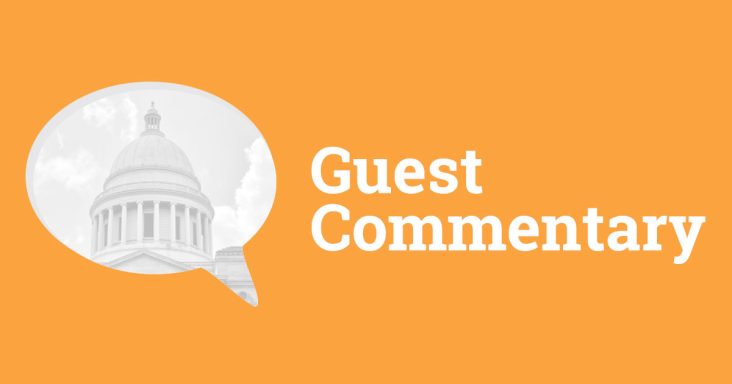Medicaid work requirement looms large, but more immediate coverage loss expected from marketplace
by July 16, 2025 5:26 am 914 views

The federal budget bill recently signed into law requires states to implement work requirements for adults in Medicaid expansion programs by 2029. Much of the attention given to this provision in the bill has focused on estimated coverage losses, with some of those estimates based on Arkansas’ experience in 2018, which resulted about 18,000 adults losing coverage in just four months.
There will continue to be debates about the merits and goals of a work requirement as a condition of Medicaid eligibility, but there’s general consensus that Arkansas didn’t quite get the implementation right. Former Arkansas Gov. Asa Hutchinson noted some lessons learned from the state’s 2018 experience in a guest column for The Hill in April, anticipating that the federal budget bill would include a work requirement.
We at the Arkansas Center for Health Improvement also noted lessons from 2018 in a piece published by the Milbank Memorial Fund, citing several essential elements to include in Medicaid work requirements, such as adequate time to assess compliance and a mechanism for identifying hardships. We closed with this: “Whether a policy that includes those components would succeed in lifting people out of poverty remains to be seen, but history suggests that a policy that does not include them is doomed to fail.”
But what if, let’s say, it did succeed? What if most Medicaid enrollees subject to a work requirement successfully completed job training, obtained work, or increased their hours worked, such that they moved up the economic ladder and out of the Medicaid program due to increased income? There’s no question that’s a good thing, but unfortunately, they would encounter challenges in maintaining healthcare coverage once they progressed out of the Medicaid program.
Sure, some might be able to access job-based coverage, but most jobs in the income range just above the eligibility threshold for Medicaid — $21,597 annually for an individual and $44,367 annually for a family of four — are hourly and do not offer insurance to employees, let alone their family members.
Their alternative would be to purchase coverage through the Health Insurance Marketplace, established by the Affordable Care Act in 2014 in all states. The marketplace is where more than 150,000 Arkansans above the Medicaid income eligibility threshold currently buy their healthcare coverage, most with some federal financial assistance. Enrollment in the marketplace has more than doubled since 2020 due to the availability of enhanced financial assistance that eliminated affordability barriers for many Arkansans.
Currently, Medicaid expansion enrollees in Arkansas are not required to pay premiums but do have some cost sharing when they access services. That cost sharing increases with income, capped at 5% of family income.
The enhanced financial assistance in the marketplace has similarly protected Arkansans from the “poverty trap” as they gain income by only nominally increasing cost exposure for insurance premiums and cost sharing. A steeper cost increase might have someone rethinking whether to take extra hours or take a promotion with only a slight raise, potentially risking loss of Medicaid coverage.
For example, a 35-year-old single female living in Pope County making $25,000 annually would currently have a $13 monthly premium and cost sharing exposure of up to $3,050 annually for a benchmark plan, the type of marketplace plan that most people purchase. If the same person increased her annual income to $35,000, she would pay a $96 premium and have cost sharing exposure of up to $7,350 annually.
In the recent budget bill, Congress elected not to extend enhanced financial assistance that smoothed coverage transitions associated with income gains. As a result, starting in 2026, the monthly premium for a benchmark plan for the same 35-year-old single female making $25,000 annually will increase to $90, and if her income reaches $35,000 annually, the premium will increase to $240 per month.
Sticker shock created by reduced financial assistance, along with recently finalized regulations that limit enrollment periods and increase cost sharing for services covered by marketplace plans, will make buying coverage and accessing services more difficult and less affordable for many Arkansans. Actuarial experts from Wakely estimate marketplace enrollment declines of anywhere from 47% to 57% in 2026, which would erase coverage gains seen in Arkansas over the last five years.
The Health Insurance Marketplace has become a critical source of healthcare coverage and stability to keep Arkansans from toppling off the economic ladder. While many of the Medicaid provisions in the budget bill are backloaded, meaning that they will be implemented in later years, the impact to the marketplace and the more than 150,000 Arkansans who depend on it for access to coverage and care will be immediate. Nudging people up the economic ladder requires rungs for them to cling to as they pull themselves up.
Editor’s note: Craig Wilson, J.D., M.P.A., is the interim president and CEO of the Arkansas Center for Health Improvement, an independent, nonpartisan health policy center in Little Rock. The opinions expressed are those of the author.
